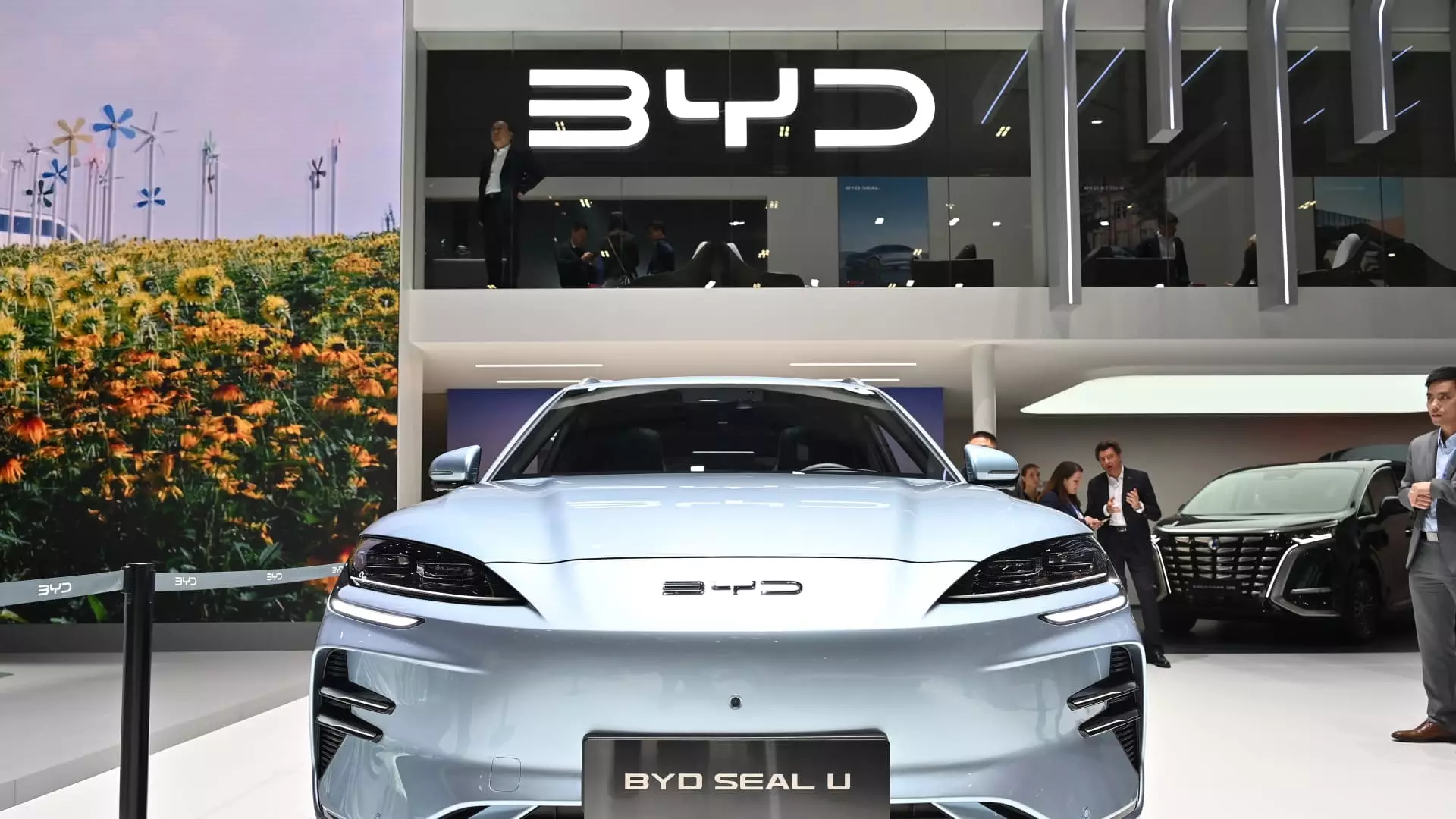The European Union recently confirmed its decision to increase tariffs on electric vehicles imported from China, citing unfair subsidization as the main reason behind this move. These tariffs, ranging from 17.4% to 37.6%, are set to take effect on Friday, affecting automakers such as BYD, European brands producing cars in China, and even US-based Tesla, which has a factory in Shanghai.
Challenges Faced by Automakers
The decision to impose these tariffs comes at a time when Chinese automakers have been rapidly expanding into the European market with competitively priced electric vehicles. This expansion poses a threat to traditional European automakers who have been slower in adapting to the shift towards electric vehicles. The European Commission has accused these Chinese carmakers of benefiting from unfair subsidization, which has given them a competitive edge in the market.
Automakers, particularly Chinese EV manufacturers, have expressed concerns about the impact of these tariffs on their business. While Nio stated that it is currently maintaining prices for its cars in Europe, it did not rule out the possibility of price adjustments in the future. Similarly, Xpeng reassured customers awaiting deliveries that they would be protected from price increases, but remained silent on whether prices would eventually be raised due to the tariffs. Geely chose not to comment on the issue when approached by CNBC.
Tesla, an American automaker with a factory in Shanghai, is also expected to be affected by the tariffs. When the EU first announced the tariffs, Tesla indicated that it might raise prices for its Model 3 vehicles in Europe. The specific level of tariffs that Tesla will face has not been disclosed yet, but the company is likely to see an increase in prices as a result of these trade barriers.
The tariffs imposed by the EU are provisional and will last for four months. During this period, EU member states will have to vote on definitive duties, which could potentially extend for five years. This temporary nature of the tariffs indicates that there is still room for negotiation between Chinese and EU officials to reach a mutually acceptable solution.
China’s Response
Chinese officials have criticized the EU’s decision to impose tariffs, referring to it as a protectionist act. The Chinese Commerce Ministry spokesperson, He Yadong, has called for both sides to show sincerity and speed up the consultation process to reach a mutually acceptable solution. Chinese EV makers have reaffirmed their commitment to the European market, emphasizing their dedication to providing innovative products and considering establishing local manufacturing capabilities in Europe to offset some of the tariffs.
The imposition of tariffs on electric vehicles imported from China by the European Union is expected to have a significant impact on the EV market. While traditional automakers may benefit from these trade barriers, Chinese manufacturers are likely to face challenges in maintaining their competitive pricing strategy in Europe. It is crucial for both sides to engage in constructive dialogue to find a viable solution that ensures fair competition in the electric vehicle industry.


Leave a Reply